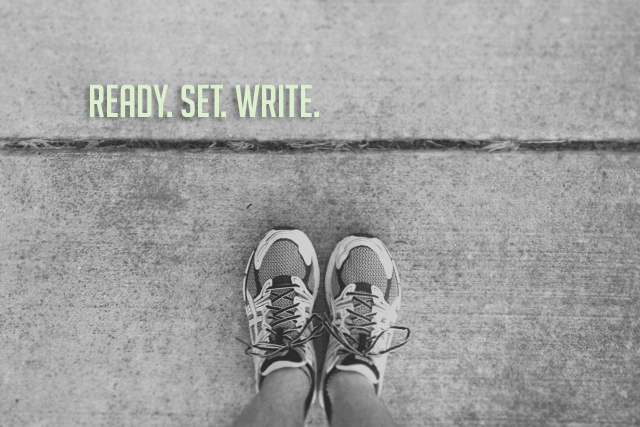Two main ingredients. That’s it. If you’re determined to be a writer, these two things are all you need to get started…
Last night I was talking to a friend of mine on the phone, trying to coordinate some resources for a film shoot that I have coming up soon. Despite the constant barrage of social media posts, many of my friends (much less the rest of the world) are still unaware of my daily Storygram short stories. When I told her about them, she responded, “That’s a lot of writing!”
This reaction wasn’t unique to her. I’ve had others, even strangers, react with an impressed “How are you doing this every day?” I wanted to write this blog post to encourage you and to tell you that it’s easy… once you’ve found your writing catalyst and your writing time.
1. The Catalyst
The catalyst is anything that gives you an idea for a story. Perhaps a better way of conveying the catalyst is to simply ask; what gets you excited to create a story? Truthfully, I have two catalysts:
- Pictures
- Music
You could’ve guessed the “Pictures” catalyst, right? The chicken and the egg conundrum do not apply to my Storygram short stories. I take a picture and edit that picture, I stare at that picture for a couple of minutes, and I start writing a story based on that picture. Sometimes I have a story in mind when I start, and sometimes I don’t, but I’ll elaborate on that in a moment.
When I listen to music, emotions surge through me, and my imagination begins to gallop. Quite often, the music I’m listening to doesn’t even have lyrics, or more likely, I need an interpreter to understand what the singer is even saying. But something about music just gets me to thinking, to imagining, to creating.
The most important takeaway from the catalyst is that it is CREATED BY ME. This is huge! I don’t sit around and wait for the motivation to write to strike me. I’ve analyzed myself to figure out what drums up story ideas in my head and what motivates me to write. I make this happen.
Find your catalyst(s). Intentionally set it in motion every day. And then, make the time to write.
2. The Time
I know you’ve heard this one: “Write every. single. day.” That’s absolutely correct! But that’s the “what” to do. You need the “how,” and the “how” is what I’m always searching for and attempting to pay forward to others.
Setting aside the time to write every day. That’s how you start writing. If it’s two hours in the evening, terrific. If you normally wake up at 6am, but your day is completely stacked until 10pm, wake up at 5am and get busy. Yes, that is going to suck. But I’m not a morning person, either. I work from home, and I wake up at 6am every day. How? I made myself. The body loves routine, which I touched on some in a post about working from home. It’s hard work, but you’ll get used to it. I promise.
Whatever you do, you have to find that writing time. It has to happen. My time actually consists of writing my Storygrams in the evening and analyzing them the next morning for what all I did wrong and need to improve upon.
Actually Starting
It wouldn’t be one of my blog posts if I wasn’t completely thorough… I over-share. It’s a curse, really.
Above, I mentioned that sometimes I don’t have an idea for a Storygram, despite the fact that I’m staring at a picture. So, what do I do? I start writing anyway.
You probably want to smack the simplicity out of me right now, but the truth is that the catalysts help you to write, but writing that first sentence is how you actually start writing. Let the second sentence takes its cues from that first sentence. Let the third sentence find commonality between those sentences. Pretty soon you’ll have a paragraph, and your mind will start forming its next steps and your story. You just have to start.
I’ve seen from many different authors that a blank page is your worst enemy. It taunts you and threatens you. It mocks you and says, “You’re not good enough to be a writer! Look! There’s nothing here!” But it’s a liar, and you prove it with that first sentence.
Find those catalysts, and when you arrive at your writing time, don’t give that blank page enough time to mock you. Let your first sentence beat all of that fear into submission and keep going!
What are some of your catalysts? When is your writing time? Have you struggled with starting to write? Let me know in the comments below!
